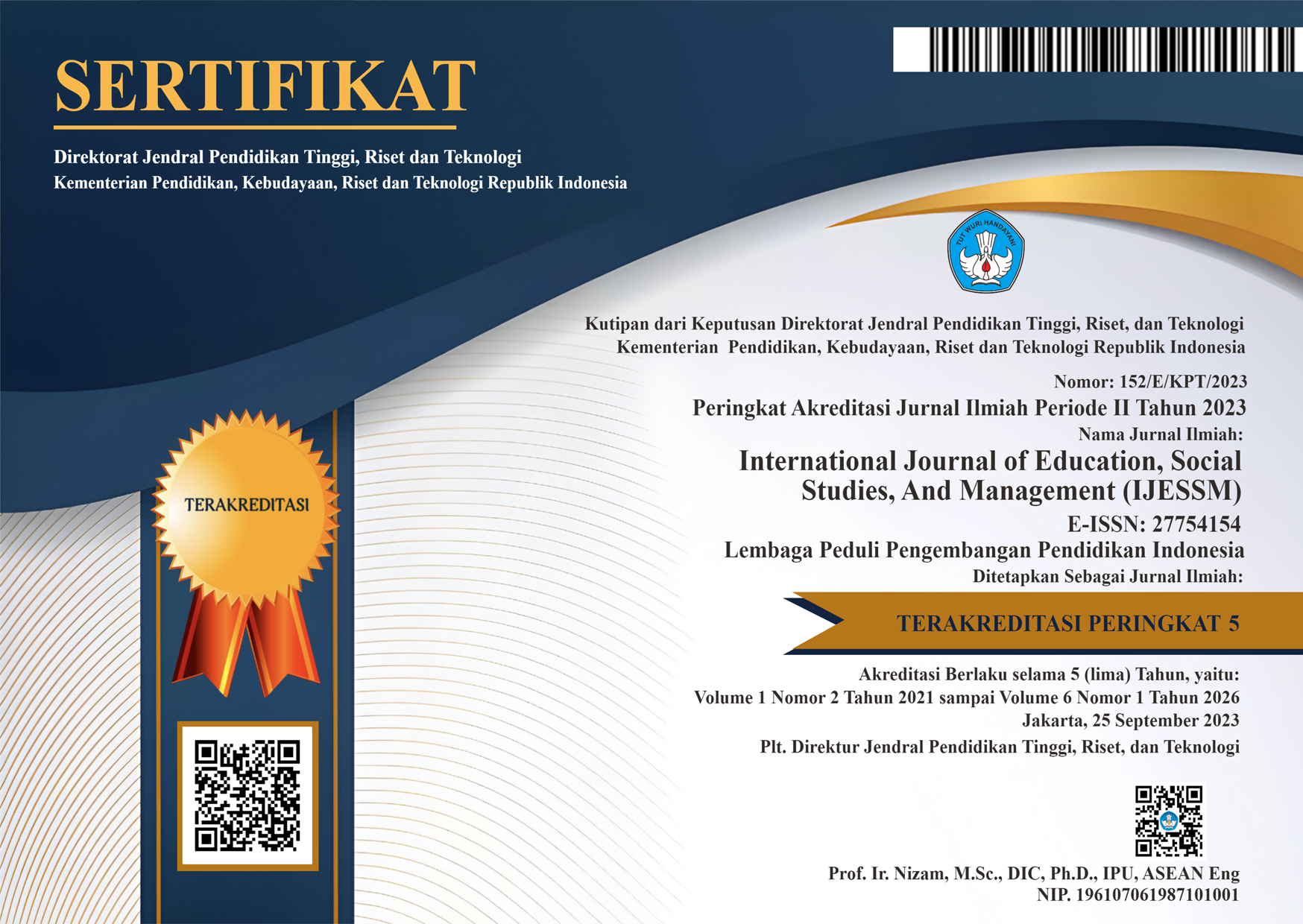The Influence of Knowledge Sharing and Self-Efficacy on the Performance of Indonesian Competitive Taekwondo Athletes
DOI:
https://doi.org/10.52121/ijessm.v5i2.814Keywords:
Knowledge Sharing, Self-Efficacy, Taekwondo, Athlete Performance, Sports PsychologyAbstract
This research examines how knowledge sharing and self-efficacy affect Indonesian elite taekwondo players. Based on the importance of knowledge management and psychological preparation in competitive sports and Indonesian taekwondo players' inconsistent international performance, this study fills a gap in the literature. A quantitative technique was used to gather data from 166 active Indonesian kyourugi taekwondo athletes using standardized questionnaires and simple linear regression. Unlike early beliefs, information exchange does not greatly improve athlete performance in this scenario. Self-efficacy has a statistically significant beneficial effect on athletic accomplishment, highlighting its importance in competitive success. These findings imply that although explicit knowledge transfer may not immediately enhance competition performance, Indonesian taekwondo players need high self-efficacy to increase mental resilience, effort, and problem-solving. Sports stakeholders must emphasize psychologically informed training to generate high-performing athletes, according to the research.
Downloads
Published
How to Cite
Issue
Section
License
Copyright (c) 2025 International Journal Of Education, Social Studies, And Management (IJESSM)

This work is licensed under a Creative Commons Attribution 4.0 International License.

















